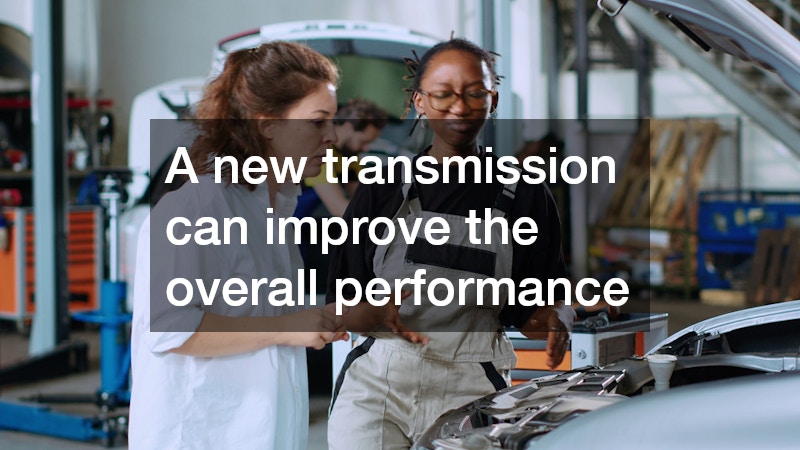When your transmission starts acting up, you may be faced with a tough decision: to repair or replace. It can be an overwhelming prospect, considering the potential costs involved in either option. In many cases, a local transmission mechanic may recommend a full replacement, and there are several reasons why they might do so.
Signs Your Transmission Needs Replacing
There are several clear signs that your transmission may be on its last legs. One of the most common symptoms is difficulty shifting gears, whether it’s a delay in shifting or sudden jerking movements.
Another red flag is leaking transmission fluid, which can indicate a serious issue with internal components. Finally, if you notice strange noises coming from your transmission, such as whining or clunking sounds, it’s definitely time to have a local transmission mechanic check it out.
Ignoring these warning signs can lead to more serious problems down the road. A failing transmission can leave you stranded on the side of the road or even cause a dangerous situation while driving. By addressing these issues early on, you can potentially avoid a full transmission replacement and save yourself a lot of headaches in the long run.
Ultimately, the decision to replace your transmission may come down to cost. While a full replacement can be expensive, it can also provide you with peace of mind knowing that your vehicle is in top condition. In some cases, it may be more cost-effective in the long run to invest in a new transmission rather than continue with costly repairs.
The Hidden Costs of Repeated Transmission Repairs
One of the main factors that may lead a local transmission mechanic to recommend a full transmission replacement is the hidden costs of repeated repairs. While a quick fix may seem like the easy solution, it can end up costing you more in the long run. Time and time again, you may find yourself shelling out money for temporary repairs that only mask the underlying issue.
Aside from the financial burden, frequent transmission repairs can also be a major inconvenience. Each visit to a local transmission mechanic takes time out of your day and leaves you without a reliable vehicle. By opting for a full replacement, you can potentially avoid these continuous trips to the shop and enjoy a more dependable vehicle overall.
In addition, a new transmission can offer improved performance and fuel efficiency, allowing you to get the most out of your vehicle. Older transmissions may not operate as efficiently, leading to decreased gas mileage and increased wear and tear on other components. Investing in a replacement can ultimately save you money in the long term.
How Mechanics Decide Between Repair and Full Replacement
When determining whether a transmission needs to be repaired or replaced, mechanics consider several factors. The extent of the damage, the age of the transmission, and the overall condition of the vehicle are all important factors.
In some cases, a minor repair may be all that’s needed to get your transmission back in working order. However, if the damage is extensive or if your vehicle is older, a full replacement may be the more practical option. Mechanics will also consider the cost of the repair versus the cost of a replacement and the long-term benefits of investing in a new transmission.
The goal is to provide you with the best solution for your specific situation. By consulting with a knowledgeable local transmission mechanic, you can make an informed decision that will keep your vehicle running smoothly for years to come.
Long-Term Benefits of Investing in a New Transmission
While the upfront cost of a transmission replacement may be significant, the long-term benefits are well worth it. A new transmission can provide you with peace of mind knowing that your vehicle is reliable and safe to drive. You won’t have to worry about sudden breakdowns or costly repairs, allowing you to enjoy your vehicle to the fullest.
A new transmission can improve the overall performance of your vehicle. You may notice smoother shifting, better acceleration, and increased fuel efficiency. These benefits not only enhance your driving experience but can also save you money on gas and maintenance in the long run.
By investing in a new transmission, you’re also investing in the longevity of your vehicle. With proper care and maintenance, a new transmission can last for many years, making sure that you get the most out of your investment. It’s a decision that can ultimately pay off in the form of a reliable and long-lasting vehicle.
When faced with the decision to repair or replace your transmission, it’s important to consider the long-term benefits of investing in a new transmission. While the upfront cost may be higher, the peace of mind and improved performance that a new transmission provides can outweigh the initial expense. By consulting with a trusted local transmission mechanic and weighing your options carefully, you can make an informed decision that will keep your vehicle running smoothly for years to come.




